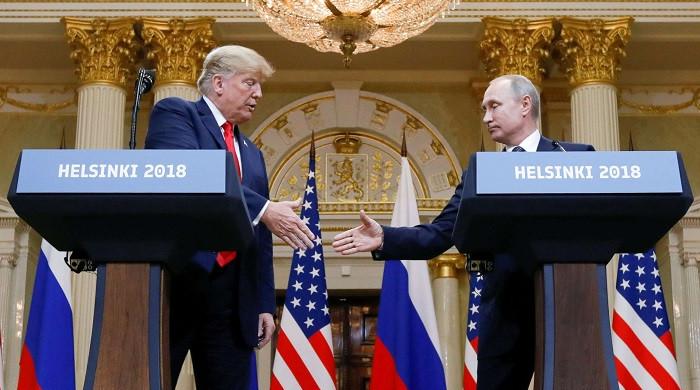- Preparations for the summit appear to have stalled after the postponement of the Rubio-Lavrov meeting.
- “I guess the Russians wanted too much,” says a European diplomat.
- Neither side has publicly abandoned plans for a meeting in Budapest.
The planned summit between US President Donald Trump and Russian President Vladimir Putin was suspended on Tuesday, with Moscow’s refusal of an immediate ceasefire in Ukraine overshadowing attempts at negotiations.
A senior White House official said Reuters“There are no plans for President Trump to meet with President Putin in the immediate future,” after Secretary of State Marco Rubio and Russian Foreign Minister Sergei Lavrov had a “productive call” but chose not to meet in person.
Trump announced last week that he and Putin would meet soon in Hungary to try to end the war in Ukraine. But Putin is not willing to consider concessions. Moscow has long demanded that Ukraine agree to cede more territory before any ceasefire.
Trump, when asked by reporters about the prospect of a summit, said he did not want to have an “unnecessary meeting” but suggested there could be further developments and that “we will let you know over the next couple of days.”
Kirill Dmitriev, Putin’s investment envoy, said in a social media post that “preparations continue” for a summit.
Russia reiterated its long-standing conditions for a peace deal in a private statement known as a “non-paper” that it sent to the United States last weekend, according to two U.S. officials and two people familiar with the matter.
The statement reaffirmed Russia’s demand for full control of the long-disputed eastern Donbass region, according to one official, effectively rejecting Trump’s call for a ceasefire beginning with a freeze of the front lines at their dominant locations.
Russia controls the entire Luhansk province and around 75% of the neighboring Donetsk region, which together constitute the Donbass region.
European leaders on Tuesday called on Washington to strongly demand an immediate ceasefire in Ukraine, with current battle lines to serve as the basis for any future talks.
NATO said Secretary-General Mark Rutte traveled to Washington on Tuesday for talks with Trump, which two sources familiar with the matter said would take place on Wednesday.
A Western official, speaking on condition of anonymity, said Rutte planned to present to Trump European views on a ceasefire and any subsequent peace negotiations.
Trump, who spoke by phone with Putin last week and met with Ukrainian President Volodymyr Zelenskiy, had hoped for another high-profile session with the Russian leader after the August summit in Alaska failed to move negotiations forward.
But both sides postponed a preparatory meeting between Rubio and Lavrov scheduled for Thursday in Budapest.
Lavrov and Rubio spoke by telephone on Monday. Lavrov said that the location and timing of the next Trump-Putin summit were less important than the content of the implementation of the agreements reached in Alaska.
The Kremlin said there was no specific date and that “serious preparation” for a summit was needed, which could take time.
“Look, we have an agreement with the presidents, but we cannot postpone what is not finalized,” Kremlin spokesman Dmitry Peskov said. “Neither President Trump nor President Putin has given exact dates.”
Asked if Moscow had an agreement on a possible date for the summit, Peskov replied: “No, there is no agreement.”
“I guess the Russians wanted too much”
Neither side has publicly abandoned plans to meet with Trump and Putin. Hungarian Foreign Minister Peter Szijjarto was in Washington on Tuesday, where he posted on Facebook: “Serious days lie ahead.”
But two senior European diplomats said the postponement of the Rubio-Lavrov meeting was a sign that the Americans would be reluctant to hold a Trump-Putin summit unless Moscow gave in to its demands.
“I guess the Russians wanted too much and it became clear to the Americans that there would be no deal for Trump in Budapest,” one said.
The Russians “have not changed their position at all and do not agree to ‘stop there'”, declared the second diplomat. “And I guess Lavrov made the same speech, and Rubio said, ‘See you later.'”
Europeans fear Trump won’t get any concessions
Ukraine’s European allies fear that Trump could meet with Putin a second time without securing serious concessions from the Russian leader.
In a statement released Tuesday, the leaders of European powers including Britain, France, Germany and the EU said they “strongly support President Trump’s position that the fighting should stop immediately and that the current line of contact should be the starting point for negotiations.”
Trump has often changed his accent in public when speaking about Ukraine. But last Friday, after meeting with Zelenskiy at the White House, he explicitly supported the position that a ceasefire should begin with forces in their current positions.
Reuters and other news outlets reported that Trump’s closed-door meeting with Zelenskiy was controversial, with the U.S. president repeatedly using profanity and pushing Zelenskiy to agree to certain Russian demands.
But Zelenskiy called the meeting a success because it ended with Trump publicly supporting a ceasefire on current lines, kyiv’s long-held position.
European leaders are due to meet Zelenskiy as a guest this week, first at an EU summit and then at a meeting of the “coalition of countries of good will” to discuss a security force to secure a post-war settlement in Ukraine. Russia rejects such an international security force.
The choice of Budapest as the venue for a Putin-Trump meeting is controversial within the EU, where Hungarian Prime Minister Viktor Orban is an exception as one of the few leaders with warm relations with Russia.
Any trip to Budapest would require Putin to fly over the airspace of other EU countries. Poland said Tuesday it could force the landing of Putin’s plane and arrest it under an international warrant if it flew over its territory, but Bulgaria said Putin could use its airspace to fly to the meeting.




